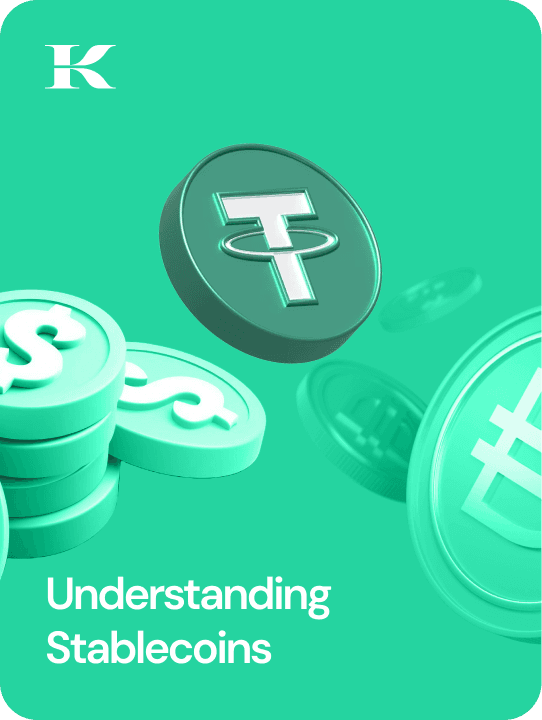Mar 15, 2022
Education
Blockchain
Bitcoin
Understanding Blockchain Technology: The Backbone of Cryptocurrency
Blockchain technology is the foundation on which the entire cryptocurrency ecosystem is built. It’s a term you’ve likely encountered frequently, especially if you’re new to the world of crypto trading. But what exactly is blockchain, and why is it so crucial? This article will break down the core concepts of blockchain technology and its significance in the crypto world.
1. What is Blockchain?
At its core, a blockchain is a decentralized digital ledger that records transactions across a network of computers. Unlike traditional databases managed by a central authority, blockchain operates on a peer-to-peer network, ensuring that no single entity has control over the entire system. This decentralization is what makes blockchain both secure and transparent.
Each transaction on the blockchain is recorded in a “block.” Once a block is filled with transaction data, it is added to the “chain” of previous blocks, hence the name “blockchain.” This chain of blocks is immutable, meaning that once data is recorded, it cannot be altered or deleted. This immutability ensures the integrity of the transaction history.
2. How Does Blockchain Work?
Blockchain relies on a network of nodes (computers) that work together to validate and record transactions. When a transaction is made, it is broadcast to the network, and nodes begin to verify its authenticity. This verification process typically involves solving complex cryptographic puzzles, known as “mining” in the context of cryptocurrencies like Bitcoin.
Once a transaction is verified, it is added to a block along with other verified transactions. This block is then linked to the previous block, creating a chain that records the entire transaction history. Each block contains a unique cryptographic hash that links it to the previous block, making the blockchain highly secure.
3. The Benefits of Blockchain Technology
Blockchain’s unique structure offers several key benefits:
Security: The decentralized nature of blockchain makes it highly resistant to hacking and fraud. Any attempt to alter a transaction would require altering all subsequent blocks, which is practically impossible.
Transparency: Because the blockchain is public, anyone can view the transaction history. This transparency builds trust among users.
Efficiency: Blockchain can streamline processes by removing the need for intermediaries, reducing transaction times, and lowering costs.
Decentralization: Without a central authority, blockchain democratizes control, ensuring that power is distributed among all participants in the network.
4. Use Cases Beyond Cryptocurrency
While blockchain is most commonly associated with cryptocurrencies, its applications extend far beyond that. Here are a few examples:
Supply Chain Management: Blockchain can provide end-to-end transparency in supply chains, helping to track the origin and movement of goods.
Voting Systems: Blockchain can be used to create secure and transparent voting systems, ensuring that election results are tamper-proof.
Smart Contracts: These are self-executing contracts with the terms of the agreement directly written into code. They automatically enforce agreements when predefined conditions are met.
5. Blockchain’s Role in Cryptocurrency
In the world of cryptocurrency, blockchain technology is the backbone that ensures trust and security. Every cryptocurrency transaction is recorded on a blockchain, providing a transparent and unchangeable record. This is particularly important in a decentralized system where there is no central authority to oversee transactions.
For traders, understanding blockchain technology is essential, as it directly impacts the security and integrity of the assets they are trading. Whether you’re dealing with Bitcoin, Ethereum, or any other cryptocurrency, the blockchain ensures that your transactions are secure and verifiable.
6. The Future of Blockchain
Blockchain technology is still evolving, with new use cases and advancements being developed regularly. As industries begin to recognize the potential of blockchain beyond cryptocurrency, we can expect to see its adoption in various sectors, including finance, healthcare, and real estate.
Conclusion
Blockchain technology is more than just a buzzword; it’s the fundamental technology that underpins the entire cryptocurrency ecosystem. Its decentralized, secure, and transparent nature makes it a game-changer in not only the financial world but also in various other industries. As a crypto trader, understanding blockchain gives you insight into how your transactions are processed and why this technology is so revolutionary.
By embracing blockchain, you’re not just participating in the future of finance—you’re helping to shape it.




